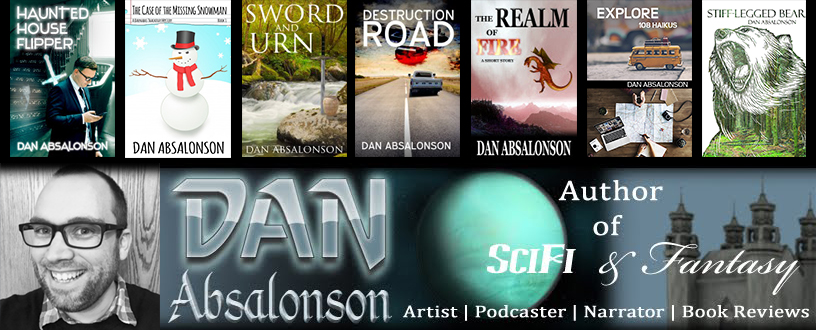Daily Lit distributes free eBooks in short installments which you set up. I signed up and the site has been sending me emails, which come right to my phone, every M-W-F & Saturday. They take about 5 minutes to read. Even I can find time to read The Farther Adventures of Robinson Crusoe with this method, it's great, because it caters to my busy lifestyle. Much like Phil Rossi's Guerrilla Writing, this could be considered Guerrilla Consuming. Getting stuff done in the slivers of time we have here and there.
Most Podiobooks.com titles deliver a 30 to 45 minute audio installment of a novel, which is the average commute time. This is a great model for audio fiction delivery. I think for text, people will move to small portions of stories that they can consume in a short amounts of time on their device of choice. I am going to try and write my long form fiction to suit this, as Michael Lee has with his great online YA novel The Hidden Kitchen. He is posting it, one chapter a day until it's done, and you can read these chapters in a short amount of time. Each one has left me wanting more, but if you're caught up you have to wait. It keeps the reader's interest in you and your work in their mind for a longer time. That's what I mean when I say writing to suit this smaller chunk serialized format, make my story a series of one small arc after another that leaves the reader wanting more at the end of each installment. Cliffhangering them, as J.C. Hutchins fans would say.
What do you think about this? Will this only work well with certain genres? What about a 110K word epic fantasy novel? I'd love to hear your comments.
UPDATE - Just had to plug one of my favorite writing podcasts and an article that describes exactly what this post is talking about, from the mouth of bestselling author Michael Stackpole.
Writing Excuses recently put out episode 4.6 called "Pacing with James Dashner" where they talk about writing shorter chapters to pull the reader along. Michael Stackpole talks about this, even breaking it into a word count suggestion. The quote below is from an Io9.com article called "The Best Way To Break Into Science Fiction Writing Is Online Publishing."
Rather than simply changing the method of delivering stories to readers, Stackpole believes digital formats will change the nature of the stories themselves. At the very least, authors should tailor their work to these new mediums. He cited what he referred to as "the commuter market," people who read two chapters per day on their half hour train ride to work. It's an ideal market for fiction broken into 2,500 word chapters, and could presage a resurgence of serial fiction. "It's kind of like a return to the Penny Dreadfuls," he said. "But the readers today are more sophisticated, so we as writers need to put more work into it."


